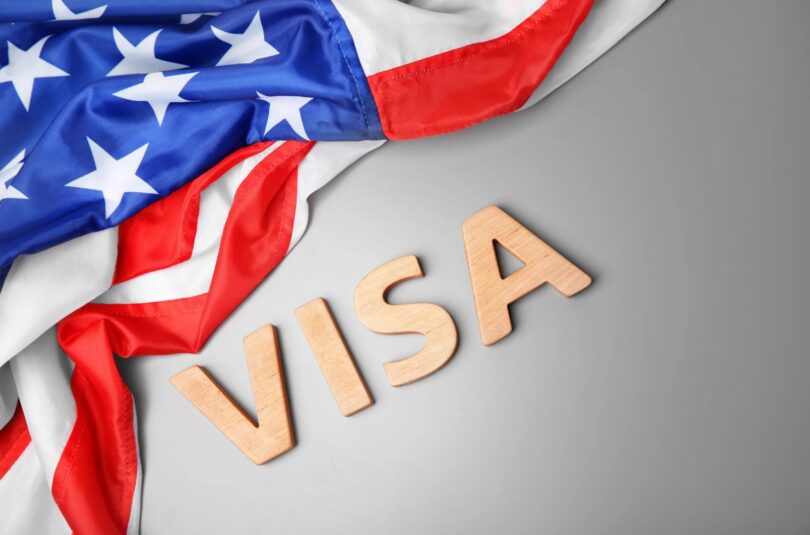The United States has canceled the F-1 visas of hundreds of international students. This sudden move, made without warning, has caused serious concern among schools and diplomats. It has disrupted students’ education and left them unsure about their legal status and at risk of being deported.
The mass visa cancellations happened because U.S. officials claim some students broke visa rules, including taking part in activities seen as anti-national. They say the action is meant to protect national security and enforce immigration laws. This situation has made it even harder for international students to understand and follow U.S. rules while trying to reach their academic goals.
As the effects of these visa cancellations continue, affected students and future applicants should stay updated, understand their visa rules, and take steps to protect their legal status in the U.S.
Legal Framework Behind F-1 Visa Revocation
F-1 visa holders must follow specific U.S. immigration laws to keep their legal status. Under Section 221(i) of the Immigration and Nationality Act (INA), the U.S. Department of State can cancel a visa at any time if it believes the person is not eligible or has broken visa rules. This law allows cancellation without warning and applies even if the person is already in the U.S.
The Department of State oversees the approval and cancellation of non-immigrant visas, including F-1 student visas. If questions come up about a student’s eligibility, the department may start a review. It often works with the Department of Homeland Security (DHS) during this process. DHS, through agencies like Immigration and Customs Enforcement (ICE) and U.S. Citizenship and Immigration Services (USCIS), checks if students follow visa rules and enforces immigration laws.
To keep their F-1 visa valid, students must meet strict rules. They must stay enrolled full-time at an approved school, make steady progress in their studies, and avoid working without permission. They also need to report any changes in address, school status, or school transfer to their Designated School Official (DSO). The DSO then updates this information in the Student and Exchange Visitor Information System (SEVIS).
If a student fails to meet any of these rules, their visa can be reviewed and possibly canceled. In some cases, even suspected behavior or connections, especially those tied to national security, can lead to losing visa privileges.
Engagement in Campus Activism
Recently, U.S. authorities have become more concerned about international students taking part in campus activism, especially protests against U.S. foreign policy or in support of groups labeled as terrorist organizations. Officials believe this involvement could violate the conditions of the F-1 student visa, which requires students to focus on academics and avoid political activities during their stay.
The Department of State says national security concerns are the reason for increased scrutiny. While the First Amendment protects free speech and peaceful protests for everyone in the U.S., visa holders face extra rules under immigration law. Taking part in protests seen as anti-national or supportive of hostile groups may be viewed as going against the purpose of the visa.
Taking part in these protests, either in person or online, can lead to a visa review. International students who join rallies, share materials, or connect with politically sensitive groups may be investigated. In some cases, visas have been revoked because of social media posts linked to controversial movements or ideas.
A recent case involved students accused of supporting or showing sympathy for groups like Hamas during campus protests about global conflicts. Even though no formal charges were filed, the Department of State said the students’ actions went against the intent of their visa terms. As a result, their visas were immediately revoked under Section 221(i) of the INA.
Social Media Activity and Online Expression
The U.S. government has increased its tracking of international students’ online activity, pointing to national security concerns. A key part of this effort is the use of AI tools like the “Catch and Revoke” system. This tool scans students’ digital behavior to spot possible threats based on what they do online.
Using this tool, authorities can monitor what students share, like, or comment on across public social media platforms. The Department of State has tied several visa cancellations to online activity that seems to support groups seen as threats to U.S. interests. This includes posts showing sympathy for terrorist organizations, spreading false information, or openly criticizing key parts of U.S. foreign policy.
Although the First Amendment protects free speech in the U.S., visa holders face different legal rules. The government has wide authority to decide who qualifies for a visa. If a student’s actions—even online—seem to go against the purpose of an F-1 visa, officials may see them as a possible security risk or as having broken the rules of their stay.
Links to Prohibited Organizations
International students who show support online for banned groups risk having their visas canceled right away. U.S. immigration officials watch closely for any links to organizations labeled as foreign terrorist groups, like Hamas. Even indirect support, such as sharing posts, liking content, or being connected online, can lead to enforcement actions under national security laws.
The U.S. Department of State and the Department of Homeland Security treat any sign of support for these groups, no matter the intent, as a serious violation of F-1 visa rules. Students on visas must avoid all types of contact with these organizations. This includes reposting their messages, liking their content, or following their pages online.
In many cases, digital footprints are the main evidence used. AI tools and tracking systems scan public online behavior and look for links between a student’s social media activity and flagged content. If found, these actions can be seen as support for hostile ideas or threats to U.S. security. This can lead to visa cancellation under Section 221(i) of the Immigration and Nationality Act.
Non-Compliance with Visa Conditions
F-1 visa holders must carefully follow the rules of their non-immigrant status to stay legally in the U.S. Breaking these rules is a common reason for visa cancellation and can result in immediate or retroactive consequences, including deportation.
Academic underperformance is a major issue. F-1 students must stay enrolled full-time and make steady progress toward their degrees. Dropping below the required course load without approval from a Designated School Official (DSO) is a violation. Similarly, poor grades or being dismissed from school can lead to losing visa status.
Working without permission is another serious violation. F-1 students can only work in certain situations, like on-campus jobs or approved programs such as CPT (Curricular Practical Training) or OPT (Optional Practical Training). Any other work, like freelancing or gig jobs, breaks visa rules and can lead to visa cancellation or deportation.
Staying in the U.S. past the allowed time—even briefly—can put students at risk. After finishing their studies or approved training, students must leave within the grace period. If they stay longer without a valid status, they could be banned from getting a U.S. visa in the future.
Consequences of Visa Revocation
Losing an F-1 visa has serious and often immediate effects for international students. Once notified, they must follow strict rules, including leaving the U.S. through tools like the CBP Home App, a system designed to help with supervised, voluntary departures. Ignoring these instructions can lead to more legal trouble.
Students who stay in the U.S. after their visa is revoked or without legal status may be detained by Immigration and Customs Enforcement (ICE), fined, and even deported to a country other than their own. These actions are usually carried out under the Immigration and Nationality Act (INA) and can lead to a ban on entering the U.S. for several years, depending on how long and why they overstayed.
Besides legal and travel problems, losing a visa can ruin a student’s academic plans. They might lose scholarships, course credits, or the chance to move to schools in other countries. It also becomes harder to get a U.S. visa again, especially if the student is marked in government systems as a risk.
Precautionary Guidance for Students and Families
To protect their legal status, international students must actively understand and follow the rules of their F-1 visa. Both students and their families should stay informed and involved to minimize the risk of violations or misunderstandings that could result in visa cancellation.
Stay Informed and Compliant
Students should fully understand all the requirements of their F-1 visa, including rules about academic enrollment, work restrictions, and reporting duties. It’s crucial to stay enrolled full-time, get approval for internships or jobs, and update your Designated School Official (DSO) with any changes, such as your address or academic program, to stay compliant.
Monitor Online Activity
With federal agencies now using AI to monitor online activity, students need to be very careful about what they post or share online. They should avoid interacting with politically sensitive or controversial content, especially anything that might seem anti-national or supportive of banned groups. Parents and guardians should also promote responsible online behavior and stay aware of the digital spaces their children use.
Go Through Campus Involvement Carefully
While the U.S. Constitution protects freedom of expression, international students must understand that their immigration status can be affected by activities seen as threats to national security or public order. Taking part in protests, political demonstrations, or groups with extreme affiliations should be done cautiously. Students should seek advice from legal experts or campus resources before getting involved in activities that could cause concerns.
Seek Legal and Institutional Support
Students should keep in regular contact with their DSO and use resources from their school’s international student office. If there’s any uncertainty or suspected violation, it’s important to seek legal advice from an immigration attorney right away. Families can also help by encouraging students to get professional support early to reduce risks.
Frequently Asked Questions
Can I Appeal a Visa Revocation?
No formal appeal process exists, but you may reapply for a new visa or seek legal advice to understand your options.
Will I Face Penalties if I Overstay After Revocation?
Yes. Penalties may include detention, fines, deportation, and future visa bans.
What Should I do if I Receive a Revocation Notice?
Contact your Designated School Official (DSO) and seek immediate legal counsel.
Conclusion
The recent wave of F-1 visa cancellations highlights how immigration rules, online activity, and national security are becoming more connected. Common reasons for losing a visa include joining campus protests, posting content seen as hostile to the U.S., suspected ties to banned groups, and breaking visa rules, like poor grades or working without permission.






